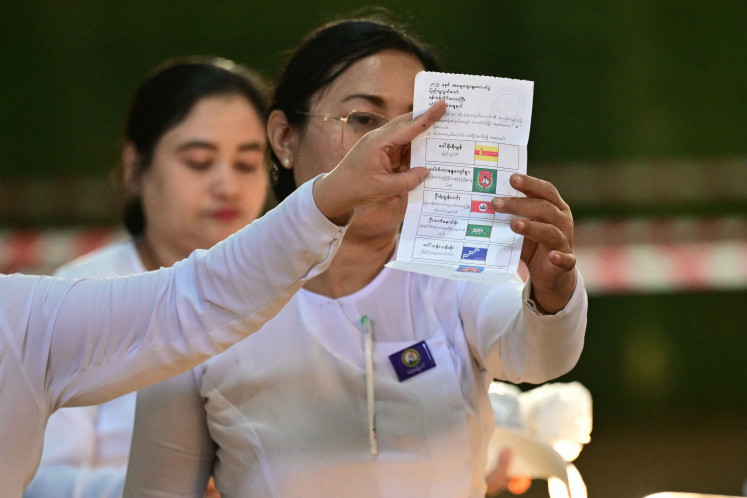Popular Reads
Top Results
Can't find what you're looking for?
View all search resultsPopular Reads
Top Results
Can't find what you're looking for?
View all search resultsSri Mulyani vs Purbaya: Balancing speed with discipline
Change text size
Gift Premium Articles
to Anyone
T
o translate fiscal policy into soccer terms, former finance minister Sri Mulyani Indrawati played defense while her predecessor Purbaya Yudhi Sadewa prefers offensive play.
If Sri Mulyani was José Mourinho: disciplined, cautious and focused on protecting the backline, then Purbaya is stepping onto the pitch as Jürgen Klopp: bold, energetic and determined to press high and attack. Where Sri Mulyani was admired for keeping Indonesia safe from fiscal shocks, Purbaya wants to win the game with speed and relentless forward play.
His tactics are already visible. Purbaya is moving Rp 200 trillion (US$12.17 billion) from government accounts at Bank Indonesia into commercial banks, instructing the central bank not to mop it back up and demanding ministries and local governments spend their budgets faster.
In total, more than Rp 430 trillion in idle government funds remains available. At the same time, key programs such as Prabowo’s free nutritious meals have already absorbed Rp 7.9 trillion by early August, above the initial projection of Rp 6 trillion. These moves reflect a simple but powerful logic: money that sits idle produces no growth.
The context explains why this approach is gaining traction. Indonesia’s economic growth in the first quarter of 2025 stood at 4.87 percent year-on-year, weaker than expected and lower than the country’s potential. The OECD and IMF have both revised Indonesia’s growth forecast downward to around 4.7 to 4.9 percent for this year. Regional governments have been notoriously slow in absorbing budgets, with some realizing as little as 1.69 percent of their allocations well into the fiscal year. Meanwhile, consumer demand remains fragile, with households facing persistent cost pressures. In such an environment, Purbaya’s push to attack rather than defend looks both pragmatic and necessary.
In many ways, this makes sense. For too long, large sums of allocated funds sat idle, absorbed only at the end of the fiscal year. Credit growth was muted as banks hesitated to lend while firms complained of tight financing. By pressing hard, injecting liquidity and pushing money to the ground, Purbaya is trying to change the tempo.
The potential upside is real. Faster budget disbursement can quickly translate into jobs, wages and purchases at the local level. Liquidity injections may lower borrowing costs and give small businesses the confidence to expand. Purbaya’s pragmatism sends a message to ordinary Indonesians: this government is not sitting back, it is charging forward.



















